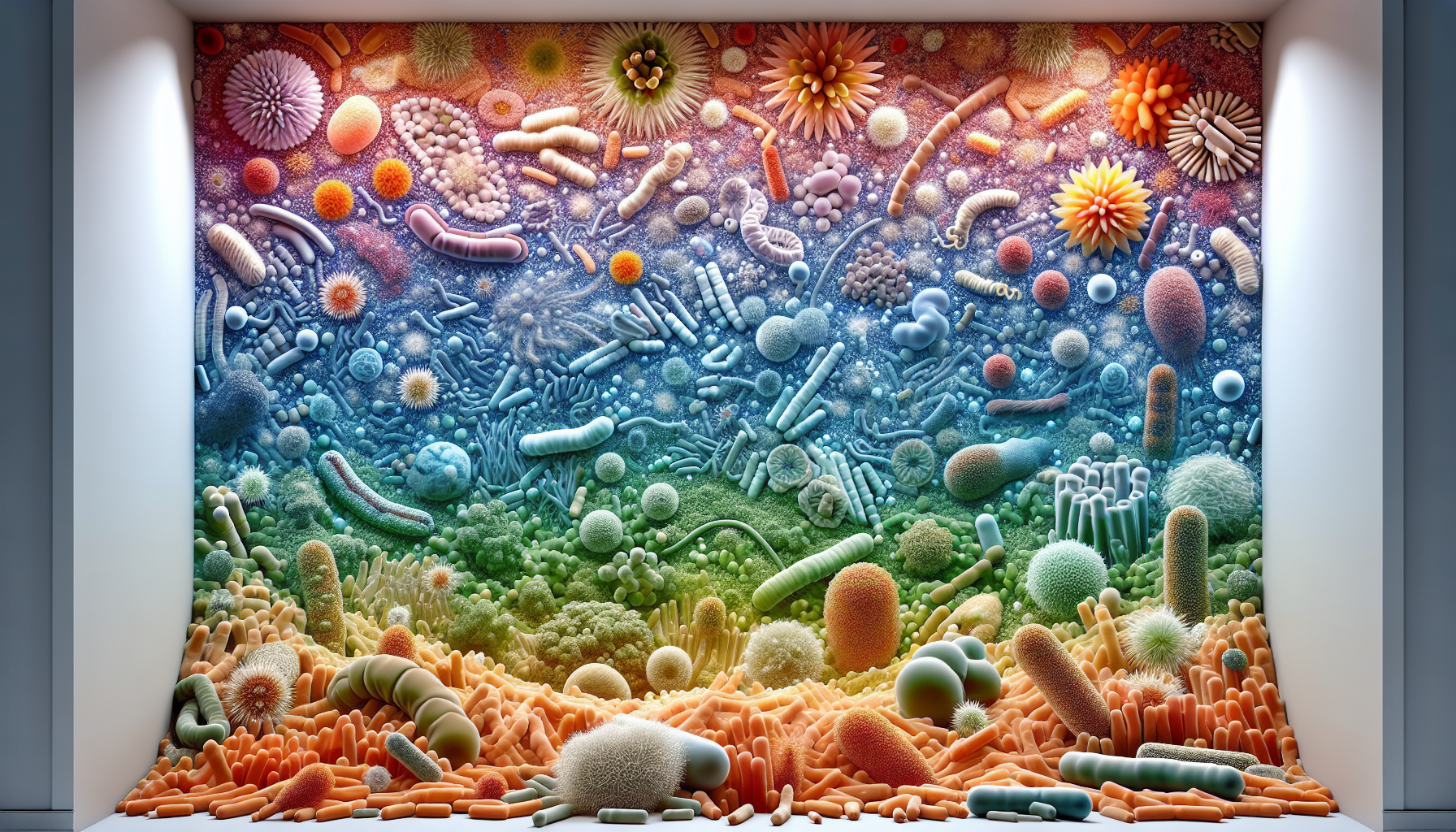Antibiotics have been a cornerstone in modern medicine, effectively combating bacterial infections and saving countless lives. However, the collateral damage from antibiotic therapy is often the disruption of the gut microbiome, the community of trillions of bacteria and other microorganisms that reside in our intestinal tract. This disruption can lead to a range of digestive issues, weakened immunity, and other health problems. Restoring gut health after antibiotic use is vital, and nutrition plays a pivotal role in this process.
The Impact of Antibiotics on the Gut Microbiome
Antibiotics work by killing or inhibiting the growth of bacteria causing the infection. Unfortunately, these drugs do not discriminate between harmful pathogens and beneficial microorganisms in our gut. The result is a diminished diversity of gut flora, which is crucial for many aspects of health, including digestion, synthesis of vitamins, and immune function.
A less diverse gut microbiome can make one susceptible to infections such as Clostridium difficile, which can be particularly challenging to treat. Furthermore, a compromised gut flora has been associated with conditions beyond the digestive system, including allergies, obesity, and even mental health issues.
Strategies for Rebuilding Gut Health
The road to recovery of gut health after antibiotic treatment involves dietary changes, lifestyle modifications, and sometimes supplementation. The goal is to promote the growth of beneficial bacteria and restore balance within the gut ecosystem.
Probiotic and Prebiotic Foods
Probiotics are live microorganisms that can confer a health benefit to the host. Incorporating probiotic-rich foods such as yogurt, kefir, sauerkraut, and kimchi into your diet can introduce beneficial bacteria to your gut. Alongside probiotics, prebiotics, which are non-digestible fibers that stimulate the growth of good bacteria, are equally important. Sources of prebiotics include bananas, onions, garlic, leeks, asparagus, and whole grains.
Dietary Fibers and Gut Health
Dietary fibers are crucial for maintaining a healthy gut. They not only act as prebiotics but also help in forming healthy bowel movements, which is vital for expelling toxins and unwanted substances from the body. High-fiber diets are linked to a lower risk of developing gastrointestinal conditions. To learn more about the importance of dietary fibers, consider reading about how dietary fibers affect intestinal barrier function.
Hydration and Gut Health
Water is essential for the mucosal lining of the intestines and for forming stool. Adequate hydration can help the gut recover after antibiotic therapy and ensure that the digestive system functions smoothly.
Avoiding Irritants
Post-antibiotic therapy is a time to avoid foods and substances that can irritate the gut or contribute to dysbiosis. These include excessive alcohol, caffeine, and processed foods high in sugar and fat.
Moderate Exercise
Physical activity can enhance the diversity of the microbiome and improve gut health. Moderate exercise has been shown to have a positive impact on the gut flora and overall digestive function. For more insights, the article on the impact of moderate exercise on digestive function provides useful information.
Supplements to Consider
While diet should be the foundation of gut health restoration, certain supplements can also be beneficial:
Probiotics
Probiotic supplements can help replenish the gut with beneficial bacteria. It’s important to choose a high-quality product that contains a variety of strains and has research to back up its efficacy. You can find further advancements in this field by exploring the advancements in probiotic supplementation.
Prebiotics
Prebiotic supplements can provide a direct source of nutrition for beneficial gut bacteria, particularly when dietary intake is insufficient.
Glutamine
This amino acid is an important nutrient for the cells lining the gut and may help repair and maintain the gut barrier after antibiotic therapy.
Collagen
Collagen supplements may support gut lining repair, thanks to the amino acids like glycine and proline which are beneficial for the intestinal barrier.
Omega-3 Fatty Acids
These essential fats have anti-inflammatory properties and can aid in reducing inflammation in the gut.
External Resources for Further Reading
- International Scientific Association for Probiotics and Prebiotics (ISAPP)
- American Gastroenterological Association
- National Institute of Diabetes and Digestive and Kidney Diseases
- The Gut Foundation
These organizations provide niche, in-depth information on gut health, the impact of antibiotics, and strategies for restoration and maintenance.
Lifestyle Considerations for Gut Health
Stress Management
Stress can negatively impact gut health by altering gut bacteria and increasing intestinal permeability. Techniques such as meditation, deep breathing exercises, and yoga can help manage stress levels.
Sleep
Good quality sleep is important for gut health. Disruptions in the circadian rhythm have been shown to have adverse effects on the microbiome.
Avoiding Unnecessary Antibiotics
Finally, to prevent future disruptions to the gut microbiome, it’s important to use antibiotics only when absolutely necessary and to complete the prescribed course as directed by a healthcare professional.
Conclusion
Recovering gut health after antibiotic therapy is a multifaceted approach that involves careful dietary choices, lifestyle changes, and possibly the use of supplements. By nurturing your gut microbiome with probiotics, prebiotics, sufficient hydration, and avoiding irritants, you can help restore balance and function to your digestive system. Incorporating moderate exercise and managing stress will further support your journey to a healthier gut. Remember, a healthy gut is not just about digestion; it’s a cornerstone of overall health and well-being.



